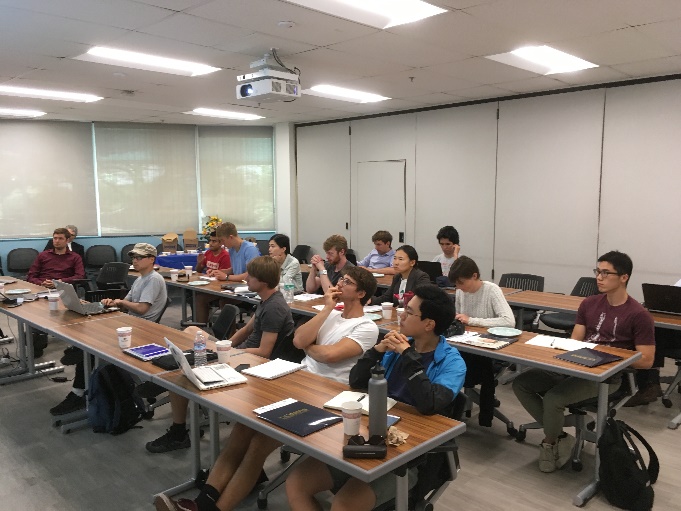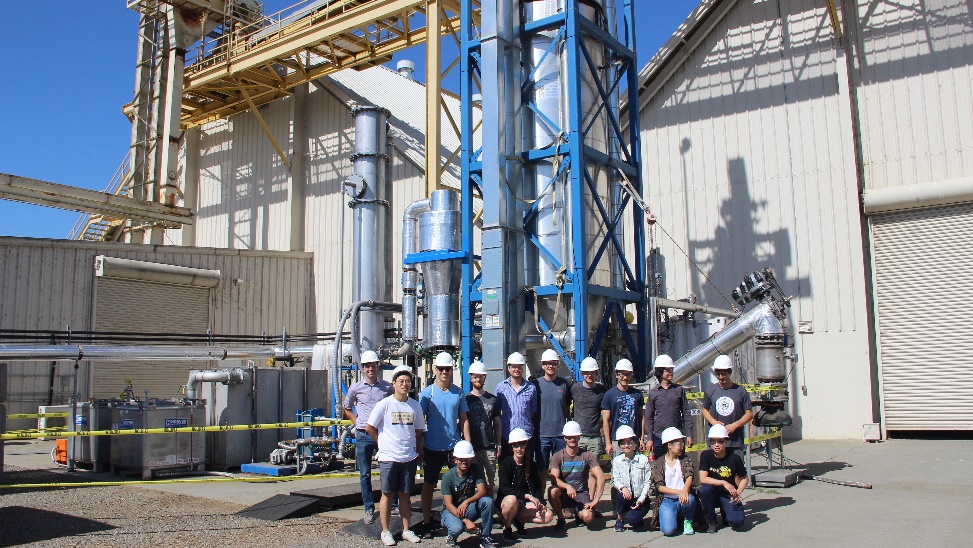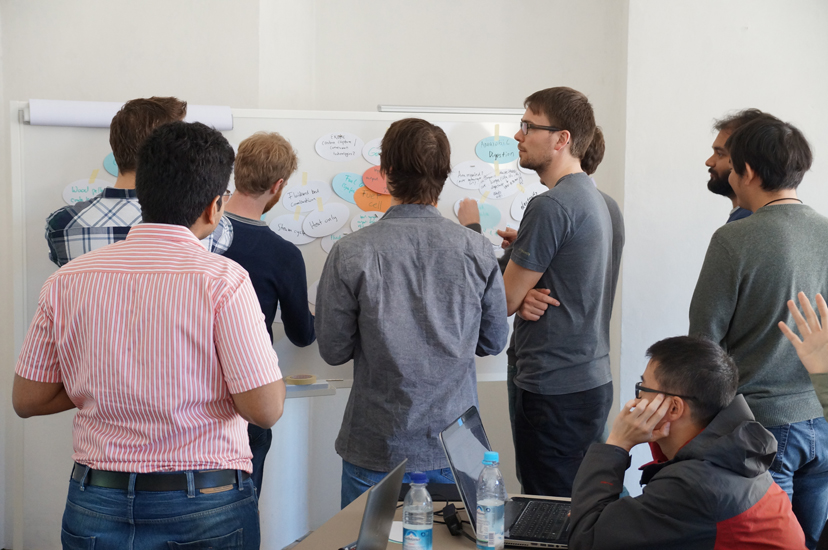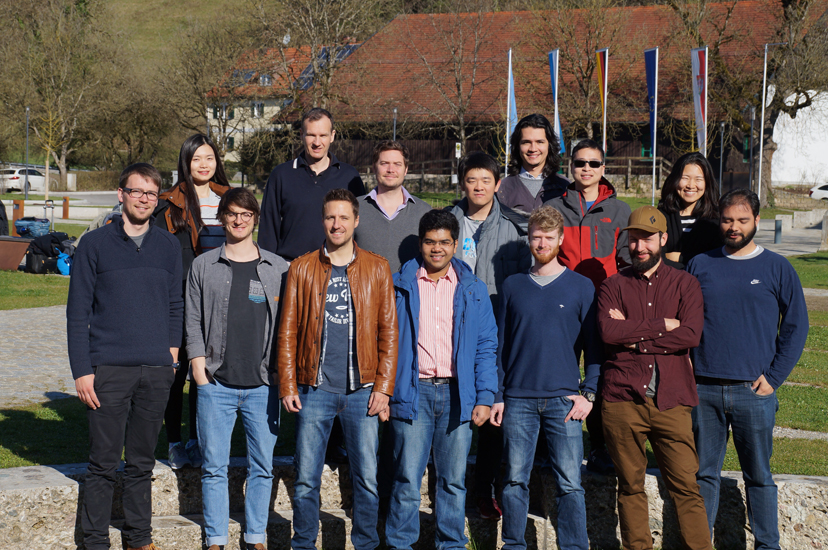Wolfgang Hillen Summer School 2017
Technical University of Munich,
Chair of energy systems
Boltzmannstr. 15
85747 Garching
Tel. +49 89 289 16270
Fax +49 89 289 16271
University of California at Davis
Biological and Agricultural Engineering
2030 Bainer Hall
California 95616, U.S.A.
International Summer School on Energetic Utilization of Biomass – Californian-Bavarian perspectives
Part 1: June 25th - 30th 2017 – Davis, California, USA & Part 2: April 3rd - 11th – Munich, Germany
Bavaria and California have extensive research and development efforts in place that are focusing on sustainable, efficient and innovative biomass utilization for power, heat and biofuel production. Both regions plan to extend the share and role of renewable sources within their energy system.
With this Summer School specifically designed for Master’s and PhD students, the state-of-the-art in the field of biomass pre-treatment, gasification and combustion will be outlined and communicated among the young researchers.
The first part of the International Summer School will be hosted by the Biological and Agricultural Engineering (BAE) department at the University of California, Davis. Key elements of this Summer School will be the general introduction to energetic utilization of biomass, Life Cycle Analysis (LCA) of different utilization pathways, modelling of gasification processes (e.g. fluidized bed modelling) and biological pathways for energetic uses of biomass feedstock. The seminars will be given by Professors from UC Davis, UC San Diego and other leading experts in the field of biomass utilization.
Students will visit a variety of Californian bioenergy facilities in the Northern California area (including: UC Davis Anaerobic Digestion facility, Woodland Biomass Power facility, Dixon Ridge Farm’s Walnut by-product gasification plant, Woodland Biomass Research Center and the West Biofuels gasification pilot plants). The Summer School will establish active participation of the students who are expected to give short presentations on their research interests so as to foster collaboration between Californian and Bavarian researchers. Hands-on laboratory sessions will include training on analytical instruments such as Micro-probe, XRD, TCD, GC-SCD, and -FID, for use in biomass, syngas, and by-product analysis.
The second part of the Summer School will take place around Munich, Bavaria. It will also comprise several seminars, lab courses and a field trip to an industrial biomass facility. During the course, invited speakers (from Bavaria as well as European project partner institutions such as VTT, ECN and DTU) will give lectures covering many aspects from biomass feedstock processing to their energetic utilization. Lab courses will be held at the Institute for Energy Systems (TUM) and will include feedstock characterization methods (e.g. elementary analysis, ash analysis, heating value, melting point) as well as biomass gasification and combustion experiments.
A detailed outline and program of this year’s Wolfgang Hillen Summer School will soon be published on the Websites: http://www.es.mw.tum.de; https://faculty.engineering.ucdavis.edu/jenkins/.
E-Mail: summerschool.les.mw@tum.de
.
Final Report (part 1: June 25-30, 2017, Davis, CA)
 The first part of the Wolfgang Hillen Summer School 2017 took place from June 25-30, 2017 at UC Davis. The 16 participants from Bavaria and California, as well as two guests from Belgium and Berlin spent a week intensively studying the energetic utilization of biomass.
The first part of the Wolfgang Hillen Summer School 2017 took place from June 25-30, 2017 at UC Davis. The 16 participants from Bavaria and California, as well as two guests from Belgium and Berlin spent a week intensively studying the energetic utilization of biomass.
Due to the different backgrounds and main research areas of the participants and the wide-ranging program, many central aspects of various process steps were discussed. In addition to lectures and panel discussions, the importance of biomass and different applications were investigated in two workshops and four excursions.
At the beginning of the summer school, all participants gave short presentations about their background and field of interest. After the welcome lunch and the official welcome by Prof. Bryan Jenkins (UC Davis) and Sebastian Fendt (TUM), a guided tour of the campus, the laboratories and technical institutes of the university took place.
On Monday, participants of the Summer School attended the first Bioenergy Symposium of the German American Chamber of Commerce (GACC) in Sacramento. The role of biogas as well as the recycling of waste in California were discussed and evaluated in various presentations. The strict climate protection strategy of the California government and the independence from central guidelines from Washington were repeatedly emphasized.
 From Tuesday to Friday, topics from the field of thermo-chemical use of biomass were presented. External speakers (e.g. Bill Orts, USDA) supplemented the contributions of UC Davis and TUM. On Friday, attendees visited various facilities and companies in Berkeley from a start-up (All Power Labs) to high-tech research facilities (JBEI, ABPDU).
From Tuesday to Friday, topics from the field of thermo-chemical use of biomass were presented. External speakers (e.g. Bill Orts, USDA) supplemented the contributions of UC Davis and TUM. On Friday, attendees visited various facilities and companies in Berkeley from a start-up (All Power Labs) to high-tech research facilities (JBEI, ABPDU).
The feedback from the participants was extremely positive and the anticipation for the second part in Munich is very high!
More information:
http://www.es.mw.tum.de/summerschool/
Final Report (part 2: April 3-11, 2018, Munich, By)
 The second part of the Wolfgang Hillen Summer School 2017/18 took place from April 03-11, 2018 at the TU Munich. The 17 participants from Bavaria and California as well as one guest from Belgium spent a week working intensively on the energetic utilization of biomass.
The second part of the Wolfgang Hillen Summer School 2017/18 took place from April 03-11, 2018 at the TU Munich. The 17 participants from Bavaria and California as well as one guest from Belgium spent a week working intensively on the energetic utilization of biomass.
Similar to the first part, the broad range of participants highlighted various aspects of the energetic utilization of biomass. In addition to lectures and panel discussions, the important role of biomass in Bavaria and different applications were discovered during 4 field trips.
On the first day of the summer school, the participants were officially welcomed at the TUM in Garching. Thereafter, a guided tour through the facilities of the Chair for Energy Systems was held, with pilot plants and laboratories being presented and explained.
The participants were taken by shuttle to Straubing, where a pilot plant by Clariant Sunliquid was visited, which produces ethanol from straw residues. After lunch, a nearby biogas plant, in which biogas is processed and fed into the natural gas grid, was examined.
The next stop was at the TUM Study Center Raitenhaslach near Burghausen. The participants presented their own research in the historic rooms of the old monastery. The remaining days were spent in Raitenhaslach and on campus Garching with lectures by external speakers. In addition to basic lectures by professors of the TUM, topics such as the production of biogenic liquid fuels for air traffic were discussed. Representatives from industry (e.g. Siemens) and research institutions (e.g. Fraunhofer Institute, Bauhaus Luftfahrt) reported on current trends and aspects in research.
Field trips to a biomass farm in Grassau and the company Clariant Products in Gendorf highlighted the importance of renewable feedstocks in an industrial environment.
 Furthermore, two workshops were held. On the one hand, ideas to make the energy supply at the TUM’s campus in Garching more sustainable were developed. On the other hand, the participants were trained in the practical characterization of biomass.
Furthermore, two workshops were held. On the one hand, ideas to make the energy supply at the TUM’s campus in Garching more sustainable were developed. On the other hand, the participants were trained in the practical characterization of biomass.
The feedback from the participants was extremely positive hopefully more summer schools will be organized in the future!
More information:
http://www.es.mw.tum.de/summerschool/
.
